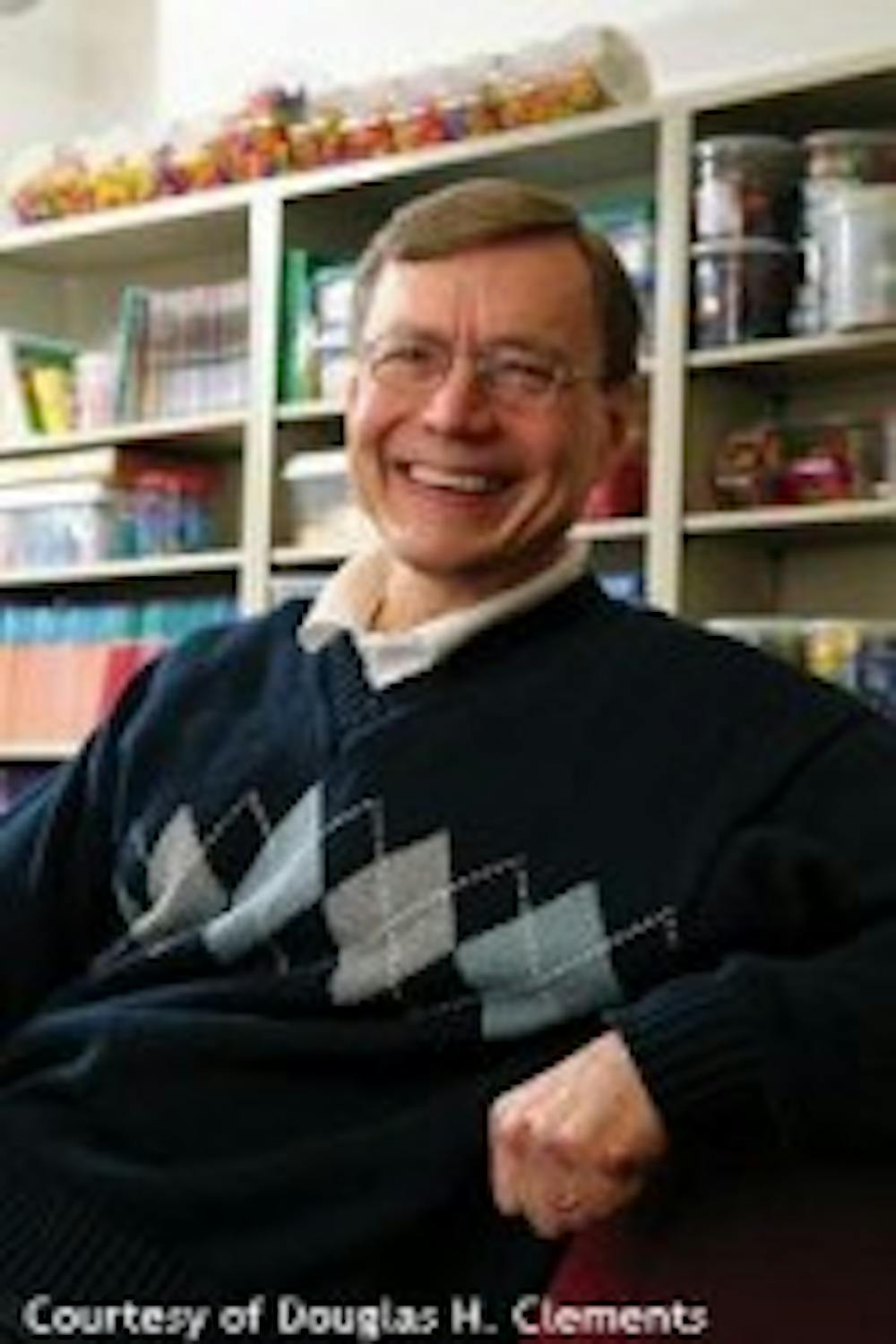A professor in the Graduate Department of Learning and Education recently took on a countrywide endeavor in education when he was appointed to the President's National Mathematics Advisory Panel.
Doug Clements, along with 16 other experts, will be advising President Bush and Secretary of Education Margaret Spellings on the best use of scientifically based research to advance the teaching and learning of mathematics in American education.
"It's always an honor to try and help kids to make a difference," Clements said. "Certainly it's something I want to do."
The panel will be responsible for producing a report documenting the best scientific evidence available to guide mathematics education by early 2008.
According to Clements, an expert in early childhood mathematics education, the math field is sorely in need of reform. He cited the achievement gap that exists between students from low and high resource communities as one reason why the U.S. doesn't perform well internationally in this field.
"The charge of the commission is to say 'what do we have in terms of scientific evidence that can help direct and guide where mathematics education should head into the future?'" Clements said.
More specifically, the panel will assume the task of determining how to approach curriculum standards and teaching in mathematics.
The panel's task was illustrated by Spellings in a press release.
"To keep America competitive in the 21st century, we must improve the way we teach math and we must give more students the chance to take advanced math and science courses," Spellings said.
Clements speculated that technology would be one of the key issues to be considered by the panel. As an authority on the role of technology in education, Clements thinks it's likely that he would lead the group on that particular aspect.
The professor, along with Julie Sarama, assistant professor of learning and education at UB, has been involved in the research and development of mathematics curriculums, often with support from the National Science Foundation and the Institute for Educational Studies. Through partnership programs between UB and Buffalo area schools, Clements' well-tested research and methods have been practiced in real environments.
Diversity, as well as objectivity, is fundamental to the workings of the panel. For this reason, it consists of mathematicians, researchers, teachers, and policy makers. Clements sees it as a "dialectical process" in which people of differing views come together and attempt to focus on the problems rather than their differences.
"My intentions going in are to try to bring the reflections we have on how scientific procedures and principles can be used," Clements said.
Clements noted that his latest work would most likely play a factor in his thinking. Recently, he and Sarama have been working on projects in Buffalo, Boston and Nashville, researching the best ways to improve existing curriculums.
"I'm hoping to bring that perspective and that knowledge of what the research actually says," he said.
The professor thinks there will be a need for discussion on the definition of scientific evidence so the council is not restricted to one point of view. He said that he understands that various methodologies and approaches - each of equal importance - will provide resources from which the panel can learn.
At this point, Clements has not been informed of most of the details about his position, and has been asked not to talk about the report until it is published.
Still, he recognizes that the position's responsibilities will be a heavy addition to his work at UB, and said he feels humbled by the enormity of the task.
"When something this important comes along you can't turn it down," he said. "It's incredibly important to show that kind of commitment and make sure that everybody sees we're all on the same page for making sure tomorrow's education is a little better for kids."





